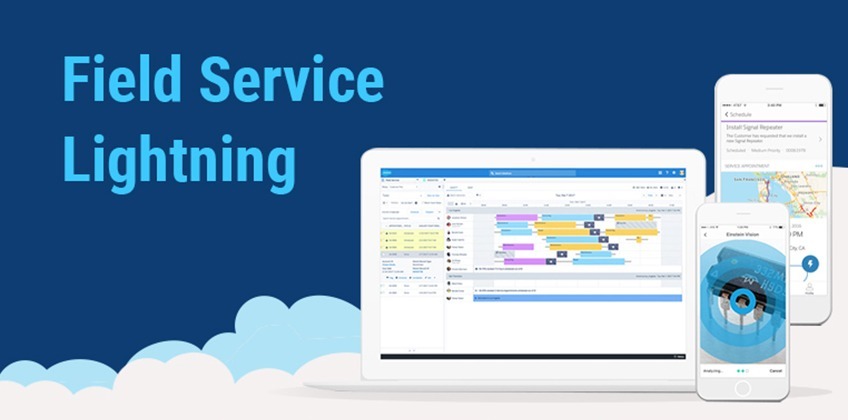
Salesforce Field Service Lightning (FSL), as you might know, is a Salesforce product that connects customers, the workforce, and products on a single platform to deliver exceptional on-site services. It also provides the customer support team a chance to intelligently delegate work to Field Service technicians and monitor them constantly. It enables them to handle customers’ records and data in the field from within Salesforce.
FSL allows us to bring together three important elements of a Business that provide on-field service.
Businesses utilizing traditional ways for field service management are often overwhelmed to provide on-time field services to their customers. However, running field service management businesses brings various challenges, including delivering on-time customer service.
If your business faces similar challenges like inefficient dispatching and scheduling, tracking technician performance, poor communication with users, and lack of data-driven decisions, choosing Field Service Lightning in Salesforce can be valuable to solve all the problems. Furthermore, companies were unsure about customer satisfaction when installation and repair tasks were managed manually via phone calls and spreadsheets. Salesforce FSL eliminates the question of efficiency with real-time tracking of field technicians.


The benefits of using Field Service Lightning (FSL) for service and maintenance businesses go beyond the minimal advantages:

Salesforce Field Service Lightning (FSL), as you might know, is a Salesforce product that connects customers, the workforce, and products on a single platform to deliver exceptional on-site services. It also provides the customer support team a chance to intelligently delegate work to Field Service technicians and monitor them constantly. It enables them to handle customers’ records and data in the field from within Salesforce.
FSL allows us to bring together three important elements of a Business that provide on-field service.

Businesses utilizing traditional ways for field service management are often overwhelmed to provide on-time field services to their customers. However, running field service management businesses brings various challenges, including delivering on-time customer service.
If your business faces similar challenges like inefficient dispatching and scheduling, tracking technician performance, poor communication with users, and lack of data-driven decisions, choosing Field Service Lightning in Salesforce can be valuable to solve all the problems. Furthermore, companies were unsure about customer satisfaction when installation and repair tasks were managed manually via phone calls and spreadsheets. Salesforce FSL eliminates the question of efficiency with real-time tracking of field technicians.

The benefits of using Field Service Lightning (FSL) for service and maintenance businesses go beyond the minimal advantages:
Copyright © 2025 Briskminds | All Rights Reserved